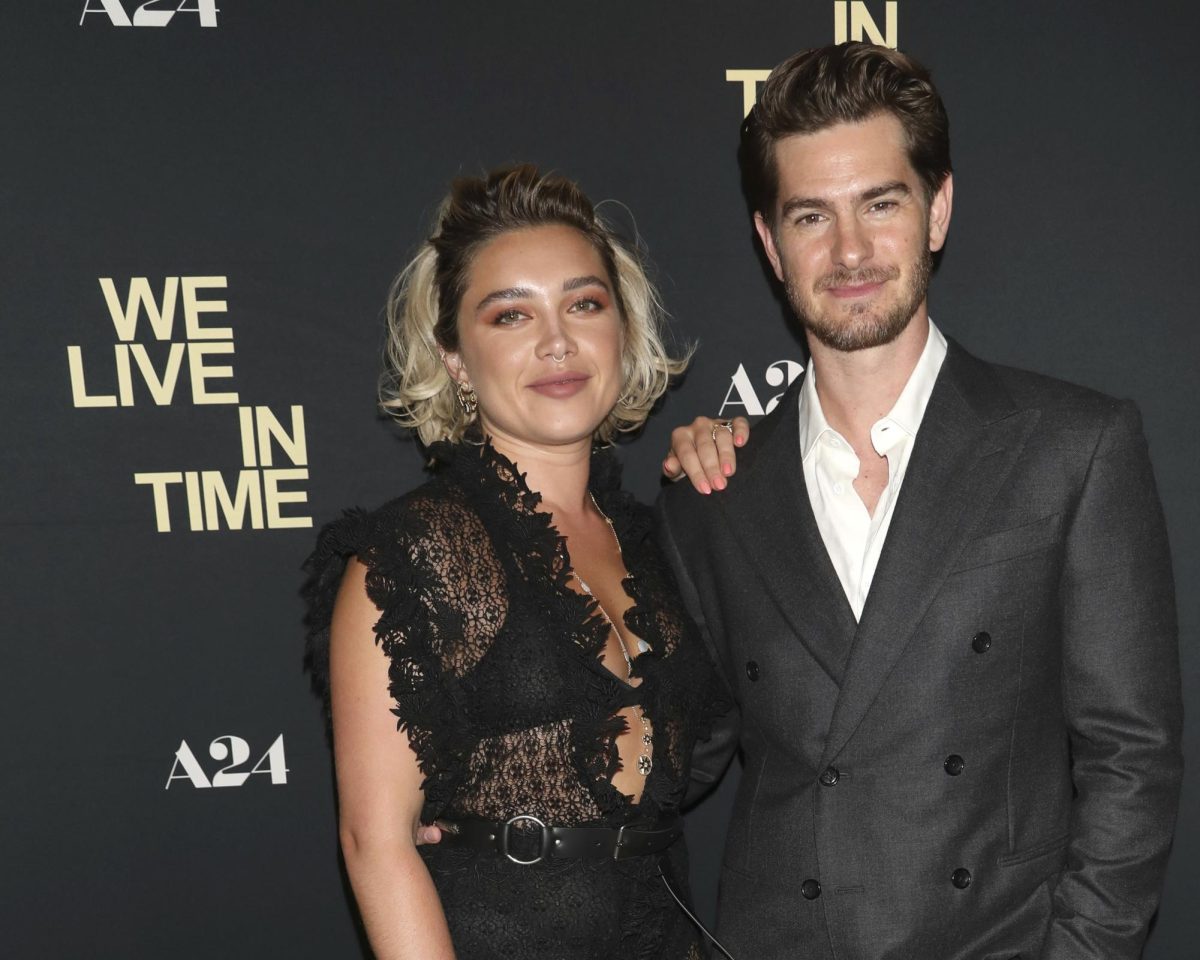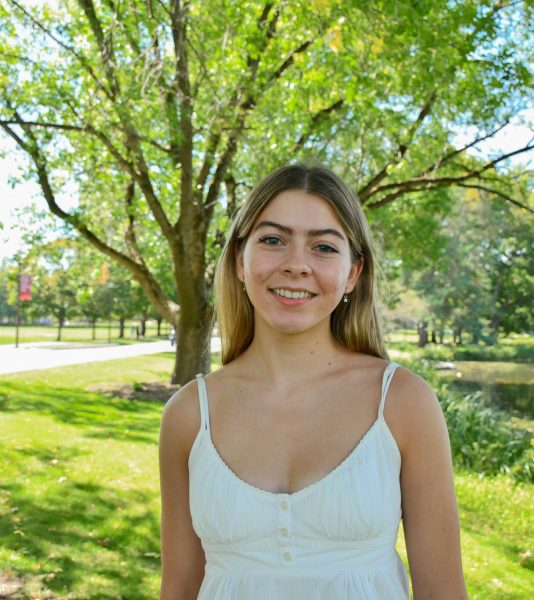I’ve been eagerly awaiting “We Live in Time” since the spring of 2023 when it was first rumored that Florence Pugh and Andrew Garfield would be starring in a movie together. Spider-Man and Amy March falling in love? Count me in. Then, when A24 released the first trailer in July 2024, I became obsessed. There’s nothing I love more than a good tearjerker, and the trailer was practically a promise for an old-fashioned ugly cry. It follows the story of a family when the mother, played by Pugh, is diagnosed with cancer.
Well, mission accomplished. After seeing the movie, I cried in the theater with my friends until the custodians kicked us out. The movie is a punch to the gut, though not necessarily in the way you’d expect.
The story is tragic, yes, but the grief in the movie is a long time coming. It casts a shadow over the entire film, but the ending is subtle in its tragedy. You don’t even realize you’re crying until your hand comes away from your face wet with tears. The true artistry of the film is the way emotions and ideas are offered up to the audience but never enforced. The director, John Crowley, is playful with time. Not only are different eras of the main character’s life together interwoven in non-linear ways, but each scene ends just a bit early, a suggestion rather than a full story. This is the magic of the movie. You take the story and feel what you need to feel, learn what you need to learn from it.
The film isn’t flawless, though. Tobias’ character is underdeveloped. He meets Almut, Pugh’s character, as he is going through a divorce, but his history is hardly mentioned again — save for his somewhat awkward conversation with Almut about how painful it was to drift apart with his ex-wife. He’s sensitive, sure, and cares a whole lot about his family. Unfortunately, there’s not much more to say. That’s not to insinuate that Garfield is at fault — in fact, he saved the character from what could have been a complete disappointment. Instead, Garfield’s honesty and emotionality brought Tobias to life despite the lack of depth.
On the contrary, Almut’s character is shockingly overwritten. She is stuffed with so much spunk, talent, ambition and backstory that her character feels unrealistic (especially side-by-side with Tobias). Not only is she a world-renowned, wildly successful chef, but she was a near-Olympic-level figure skater. Listen, I’m all for powerful, capable female characters, but come on.
I’m willing to forgive the figure-skating plotline, though, because it brought us the most beautiful moment of the entire movie. Almut and her family go ice skating at a pivotal moment, and Almut glides ahead to recapture the feeling of skating as a child. The image of Almut waving from across the rink towards Tobias and their daughter, Ella, has flashed through my mind over and over. “We Live in Time” lingers not on death, but on absence. What do you do with a life empty of the ones you love the most? Are they ever really gone?
Manohla Dargis points out another memorable scene in her review for the New York Times. It comes at the climax of the movie — the inevitable fight between Almut and Tobias, when the pin finally drops. One of the best lines in the movie, Almut defends her decision to participate in a cooking competition.
“I don’t want to just be someone’s dead mum,” Almut said.
In what could have been a fantastic take on identity in the face of impending death, the writers just miss the mark when seconds later Almut explains that she wants her daughter to have good memories and high regard for Almut after she passes away.
“Almut tells Tobias that she worries what kind of legacy she’ll leave Ella, never mind that she’s internationally recognized already. That she — or any woman — would want to keep working because it’s meaningful to her doesn’t seem to have dawned on the filmmakers,” Dargis wrote.
Of course, I have to mention the chemistry between the two co-stars: not just romantic chemistry, but creative chemistry. Both were deeply committed to the lives they were playing on screen, and the result was an honest, even spiritual connection.
“Very quickly, I could instinctively feel that I was safe with [Pugh], and we could travel to very vulnerable places together. I think she felt the same with me,” Garfield said in an interview with Rolling Stone. “The closeness that you get to cultivate with another human being as a creative collaborator is profound, if you’re lucky enough to be connected to someone that wants the same things that you want, actually pushes you further than you thought you would go, and vice versa.”
Sophomore Mia Vasco also admired Garfield and Pugh’s compatibility and style together.
“I thought it was good. They made a good choice with the actors, and I liked how the style of the film wasn’t linear,” Vasco said. “It was a bit cliche, though.”
Although the story isn’t the first of its kind, “We Live in Time” is a movie that will stay with you long after you watch it. The plot was perhaps unoriginal, but that’s an important part of the movie’s meaning. 2 million people will be diagnosed with cancer in 2024 alone. The disease isn’t rare, but it changes lives. It’s affected almost everyone in some tangible way. These stories are the ones that need to be told the most.
“We Live in Time” isn’t just a story about cancer. It’s a story about humanity. It’s an important reminder of how messy and beautiful and uncertain life can be. The movie is imperfect, but so is life. So is love. So is loss.

















